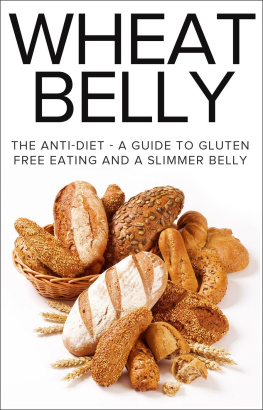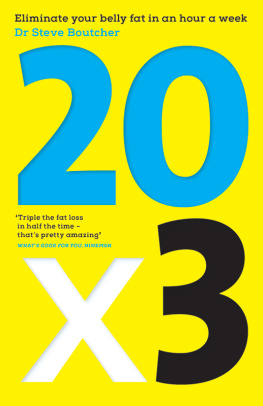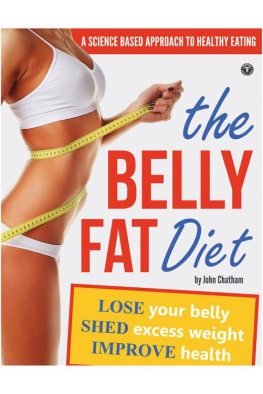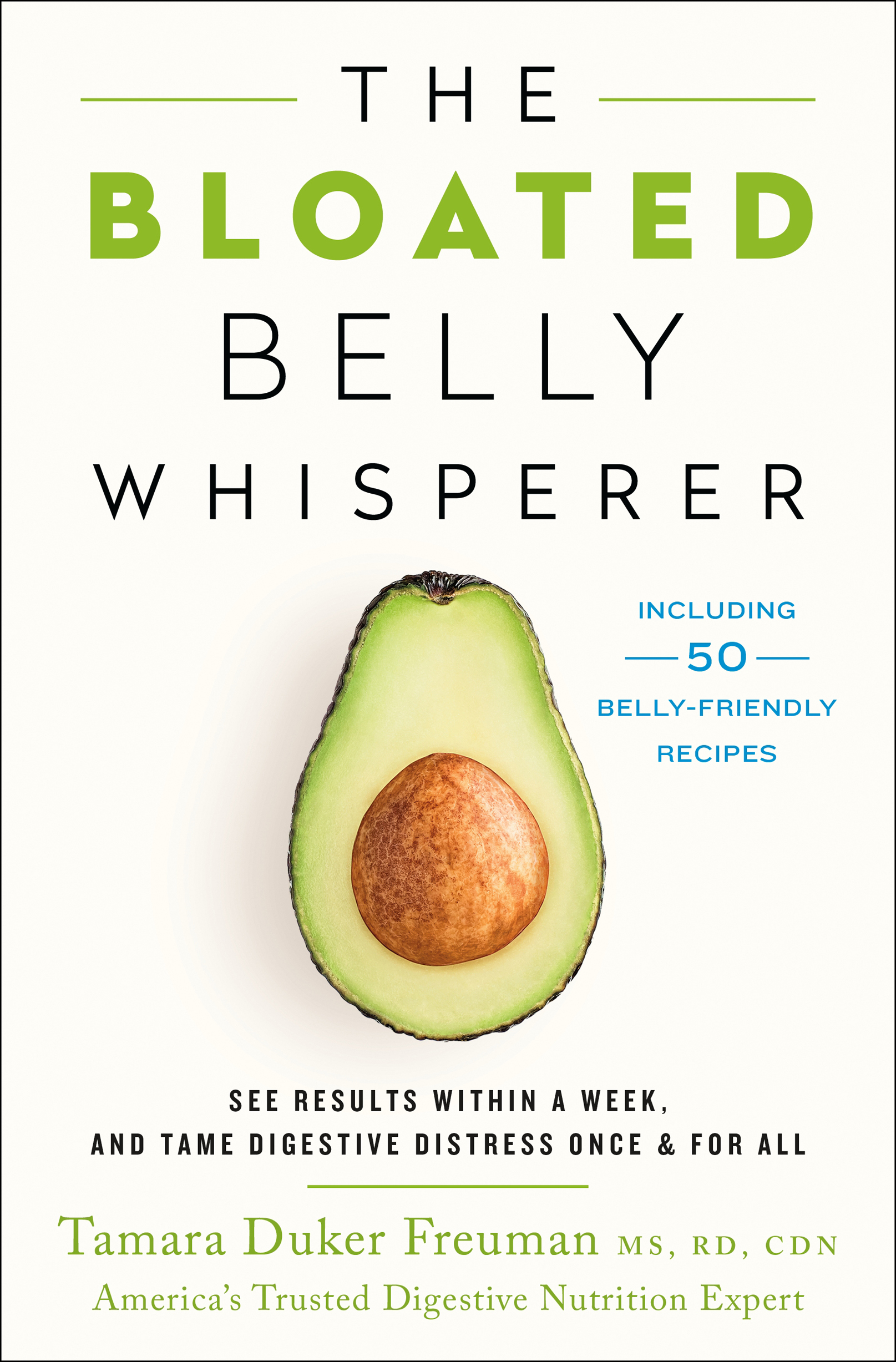Contents
Guide
Pagebreaks of the print version

The author and publisher have provided this e-book to you for your personal use only. You may not make this e-book publicly available in any way. Copyright infringement is against the law. If you believe the copy of this e-book you are reading infringes on the authors copyright, please notify the publisher at: us.macmillanusa.com/piracy.
To Max and Stella
May your bellies only ever know peace
AS THE OLD SAYING GOES , it takes a village to write the Rosetta stone of bloating. Thankfully, a genius team of gastroenterologists resides in my village, and they reviewed this book for medical accuracy. Every bloated belly Ive vanquished is a credit to Eric Goldstein, M.D., whose mentorship shaped me into the practitioner I am, and whose appreciation for the role of nutrition in digestive health created a model of the patient-centered gastroenterology practice. Thank you also to Yevgenia Pashinsky, M.D., for her friendship and showing the world what a doctor-dietitian collaboration should look like; I love playing Watson to her Sherlock to solve digestive mysteries of all flavors. Thanks also to Christina Tennyson, M.D., for generously sharing her expertise.
* * *
This book would not exist without the foresight of my brilliant agent, Carole Bidnick, who talked me out of writing the wrong book and into writing the right bookthough I take full credit for my wise decision to just shut up and do everything she tells me to. Thank you for escorting me so deftly into my career as an author and for introducing me to Kristine Kidd.
Every dietitian should be so lucky as to have a talented and creative recipe developer like Kristine, who can take a set of diet restrictions and churn out inspired recipes that deliver a wholly unrestricted culinary experience. Thank you for being such a generous adviser and collaborator.
I am beyond grateful to my editor, Jennifer Weis, for believing in this project right out of the gate and for fighting so hard to find me a home at St. Martins Press. Thank you for your confidence, dedication, and editorial prowess. Huge thanks also to Sylvan Creekmore, whose professionalism, responsiveness, and patience made my first foray into publishing such a pleasure.
Much effort went into making sure that word of this book reached the thousands of bloated bellies for whom it was intended. For this, I am grateful to the most hands-on A-team of marketing and publicity I could have ever hoped for: Brant Janeway, Tracey Guest, and John Karleas well as Associate Publisher Laura Clark. When they joined forces with my savvy brain-trust from Your Expert Nationthe incomparable Bridget Marmion, Rich Kelley, and Johanna Ramos-BoyerI knew that this book was in the most capable hands imaginable.
Thank you to Michael Storrings for designing my books iconic cover, and to Natalie Kueneman of Roundhouse Development for creating an online home far more fashionable than my bricks-and-mortar one, www.thebloatedbellywhisperer.com.
Finally, thank you to my husband, Alex, for your love, support, and excellent housekeeping that allowed me to neglect my earthly duties and escape to write. We joked that this book was written in stolen moments, but I recognize that many of those moments were stolen from our family life. I promise to make up all of those moments when we grow old, retire to the South of France, and are finally free to engage in uninterrupted potty talk all day long together.
I STARTED MY CAREER AS a dietitian in a gastroenterology practice, fresh out of graduate school. I was light on real-life experience with people who had digestive problems, but I arrived full of textbook knowledge about all of the conditions I thought Id encounter in my new job. Id done my homework and read up about how to use diet to manage diarrhea and constipation, the pain of irritable bowel syndrome (IBS), and the heartburn associated with acid reflux. I felt ready to address whatever complaints my patients would bring.
But in the three years of my dietetics education and all those months spent training in the hospital, I had never once heard of the problem that patient after patient showed up complaining about: bloating.
Bloating? What did that even mean? It wasnt a clinical condition I had ever learned about, and as far as I could tell, there was no official definition of what it was and how it should be treated. So each time patients told me they were bloated, I probed deeply to understand exactly what they meant. I asked them to describe the feeling of being bloated, what times of day it happened, what circumstances brought it on, how long it lasted, what made it better, what made it worse, whether it was painful, what it looked like, what other symptoms accompanied it. I needed to understand what this bloating thing was so that I could help fix it.
The more bloated patients I questioned, the more I came to understand that bloating was not a single, uniform experience that could be fixed with a one-size-fits-all solution. To some, bloating described a feeling of excessive fullness after eatingsometimes even after eating very little. To others, it described a distended belly that looked pregnant after eating. Some people belched when bloated; others farted. When bloating was accompanied by gas from either end, it might be painful or not. And when bloating was painful, it was sometimes a pressure-type pain at the top of the stomach underneath the rib cage, a series of sharp gas pains on the sides, or a crampy pain below the belly button. Some bloating was relieved after going to the bathroom, and some wasnt. Some people woke up feeling bloated, while others found that their bloating built as the day progressed. Bloating meant so many different things.
Bloating is a symptom of something else, not a medical condition unto itself, and after spending years in my medical nutrition practice interviewing thousands of patients with digestive problems, I came to recognize distinct patterns among the different types of bloating that patients presented. As these patterns became clear to me, I became better and better at matching a patients description of their bloating experience with its most likely underlying medical cause. I was then able to recommend tailored dietary advice that would address my patients unique brand of bloating and collaborate with their doctor to help them get the proper diagnosis and, when appropriate, the right treatment. My bloated patients were getting better, often within days of initiating the right diet regimen.
So I started writing about bloating online in an attempt to share what Id learned with people who might not have access to a local dietitian who was highly specialized in digestive disorders. And thats when the emails and calls started pouring in. Ive heard from athletes in the Middle East battling bloating as they trained for endurance competitions and computer programmers from India who suffered tough digestive consequences when following their familys traditional vegetarian diet. Mostly, though, I heard from countless people all across America who just couldnt figure out why they were so darn bloated all the time, who felt that theyd tried everything and were desperate for a solution.
A grateful patient once remarked to me that I was like her bloating whisperer, and my husband got a good laugh about that nickname. But it stuck. While its certainly not a title I ever aspired to as a little girl fantasizing about what Id be when I grew up, I embrace it nonetheless. As fate would have it, learning the secret language of bloating has become something of my calling in life, and this book is my way of sharing this knowledge with all the bloated bellies I wont have occasion to meet personally. I hope it helps you or someone you love.










